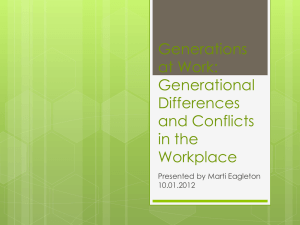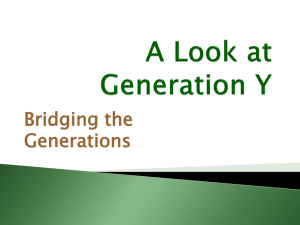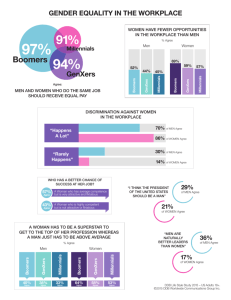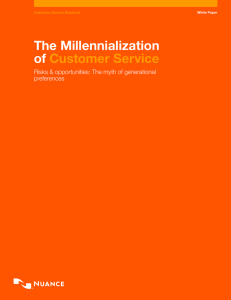Generations in the Workplace
advertisement
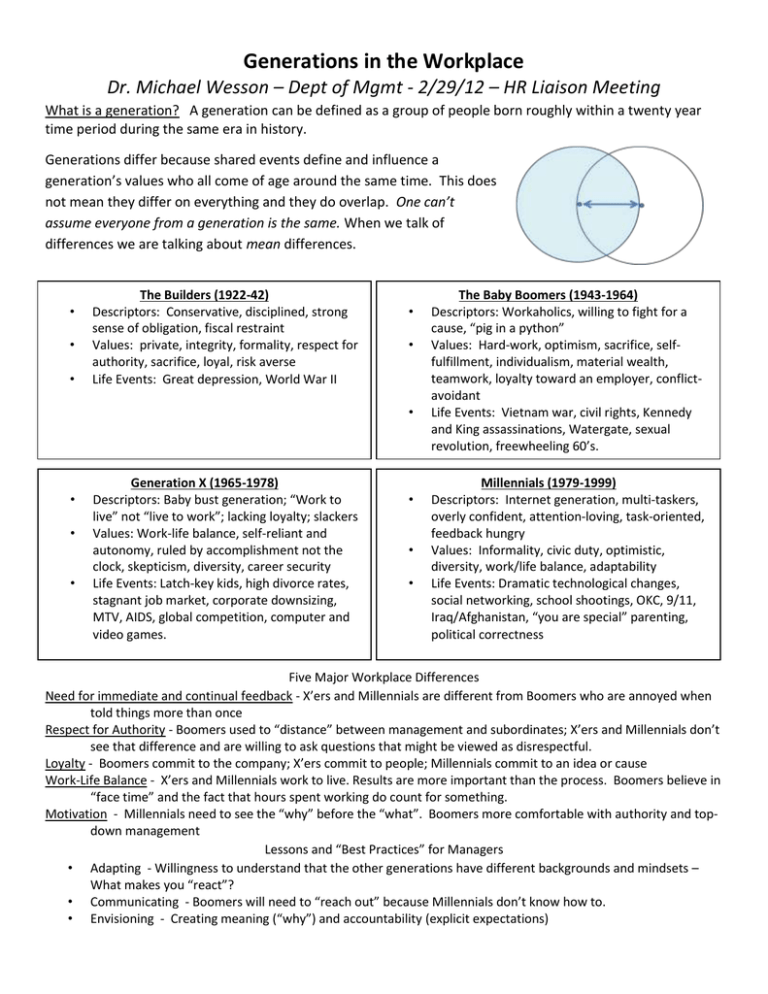
Generations in the Workplace Dr. Michael Wesson – Dept of Mgmt - 2/29/12 – HR Liaison Meeting What is a generation? A generation can be defined as a group of people born roughly within a twenty year time period during the same era in history. Generations differ because shared events define and influence a generation’s values who all come of age around the same time. This does not mean they differ on everything and they do overlap. One can’t assume everyone from a generation is the same. When we talk of differences we are talking about mean differences. • • • The Builders (1922-42) Descriptors: Conservative, disciplined, strong sense of obligation, fiscal restraint Values: private, integrity, formality, respect for authority, sacrifice, loyal, risk averse Life Events: Great depression, World War II • • • • • • Generation X (1965-1978) Descriptors: Baby bust generation; “Work to live” not “live to work”; lacking loyalty; slackers Values: Work-life balance, self-reliant and autonomy, ruled by accomplishment not the clock, skepticism, diversity, career security Life Events: Latch-key kids, high divorce rates, stagnant job market, corporate downsizing, MTV, AIDS, global competition, computer and video games. • • • The Baby Boomers (1943-1964) Descriptors: Workaholics, willing to fight for a cause, “pig in a python” Values: Hard-work, optimism, sacrifice, selffulfillment, individualism, material wealth, teamwork, loyalty toward an employer, conflictavoidant Life Events: Vietnam war, civil rights, Kennedy and King assassinations, Watergate, sexual revolution, freewheeling 60’s. Millennials (1979-1999) Descriptors: Internet generation, multi-taskers, overly confident, attention-loving, task-oriented, feedback hungry Values: Informality, civic duty, optimistic, diversity, work/life balance, adaptability Life Events: Dramatic technological changes, social networking, school shootings, OKC, 9/11, Iraq/Afghanistan, “you are special” parenting, political correctness Five Major Workplace Differences Need for immediate and continual feedback - X’ers and Millennials are different from Boomers who are annoyed when told things more than once Respect for Authority - Boomers used to “distance” between management and subordinates; X’ers and Millennials don’t see that difference and are willing to ask questions that might be viewed as disrespectful. Loyalty - Boomers commit to the company; X’ers commit to people; Millennials commit to an idea or cause Work-Life Balance - X’ers and Millennials work to live. Results are more important than the process. Boomers believe in “face time” and the fact that hours spent working do count for something. Motivation - Millennials need to see the “why” before the “what”. Boomers more comfortable with authority and topdown management Lessons and “Best Practices” for Managers • Adapting - Willingness to understand that the other generations have different backgrounds and mindsets – What makes you “react”? • Communicating - Boomers will need to “reach out” because Millennials don’t know how to. • Envisioning - Creating meaning (“why”) and accountability (explicit expectations)

